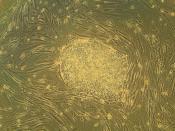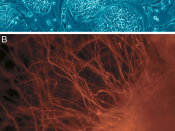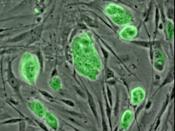Stem cells are truly intriguing, as even a trivial number of stem cells can permanently repair a dead or fatally damaged organ. Scientists have been studying stem cells for approximately two and a half decades; however, the issue became highly controversial when human embryonic stem cells were first discovered in 1998. Perhaps the most difficult problem about stem cell research is that it raises questions about fundamental beliefs such as what constitutes a human life. People tend to be somewhat inflexible when considering their personal beliefs on matters involving ethics and morality. Advocates see these discoveries as foreshadowing new opportunities in biological and medical research. Stem cells could potentially relieve people around the world who suffer from diseases that are currently incurable by other treatments. Since August 9, 2001 the United States has operated under a general set of regulations established by President George W. Bush, restricting certain types of stem cell research that can be funded by the federal government.
Clearly, experimentation with human embryonic stem cells is a highly controversial topic and is subject to ample debate in the years to come.
Proponents of stem cell research argue that the ethical and moral dilemmas associated with human embryonic cells are greatly outweighed by the endless potential benefits of curing the world's most deceptive diseases. Scientists predict stem cells can replace damaged organs in a patient with an injury or a degenerative disease. According to Issues and Controversies, "Donated stem cells work superbly for heart patients. Studies found patients' scar tissue was repaired 33% for those using human embryonic cells (Deena, Berkot)." Recent advances in technology have enabled doctors to retrieve stem cells from patients' personal organs for later use in the same patient.
The body does not recognize these "personal cells" as foreign cells, thus they don't...


